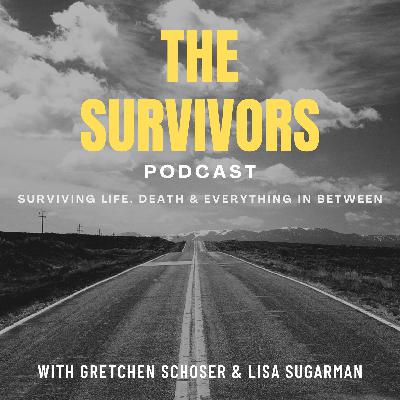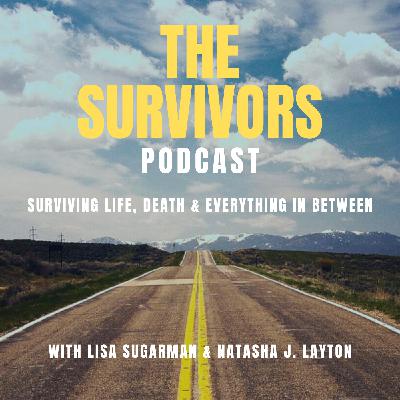Why We Need To Stop Saying 'Committed Suicide': Changing the Language of Mental Health
Description
Words have power, and in the world of mental health, language can either be a bridge or a barrier. In this raw and vital episode, Lisa and Gretchen unpack why it's time to retire the phrase "committed suicide" and explore how compassionate language can shift stigma, empower survivors, and spark much-needed change.
🎥 Watch the Video Podcast on YouTube:
A video version of this episode is available here: https://www.youtube.com/@TheSurvivorsPodcastChannel
🎙️ Episode Sponsored by TheHelpHUbB.co
This episode is proudly brought to you by https://www.thehelphub.co
Struggling with your mental health? Feeling lost, overwhelmed, or just… alone? You’re not. Visit The HelpHUB—your online destination for personalized mental health resources, tools, and support. With 16+ categories of tailored content, downloadable guides, crisis support, and professional networks, TheHelpHUB.co is here to help you move forward—one compassionate step at a time.
💙 Because your mental well-being matters. 💙
💡 Episode Summary
In this powerful episode, Lisa and Gretchen tackle one of the most impactful conversations around suicide: how we talk about it. They challenge the outdated, stigmatizing phrase "committed suicide" and offer insight into alternative language that centers empathy, healing, and truth. Through lived experiences—Lisa as a suicide loss survivor and Gretchen as an attempt survivor—they highlight why language matters, and how shifting it can transform both personal and collective grief.
📘 Lessons Learned
Language shapes stigma: “Committed suicide” carries connotations of crime and shame.
Empathy-first communication can change minds—and save lives.
There are healthier, more respectful alternatives: “died by suicide,” “lost their life to suicide,” or “took their own life.”
Survivors of suicide loss and attempt need compassion, not judgment.
Changing language helps change narratives, which leads to more prevention, awareness, and healing.
⏱️ Chapters
00:00 – Trigger Warning & Welcome
01:20 – Why Language Matters
04:47 – The Realities of Mental Illness
06:39 – Calling 988 Saved a Life
10:19 – The Problem with “Committed”
14:01 – The Weight of Loss
19:40 – Changing the Belief That Suicide Is “Selfish”
23:43 – Your Call to Action: Change the Language
26:34 – Final Thoughts & Real Talk
📚 Resources for Mental Health & Support
🔹 The Survivors Podcast Website: https://thesurvivors.net/
🔹 The HelpHUB™ – Mental health resources, tools, and support: https://www.thehelphub.co/
🔹 Schoser Talent and Wellness Solutions – Wellness coaching: https://schosersolutions.com/
🔹 Sh!t That Goes On In Our Heads – Award-winning mental health podcast: https://goesoninourheads.net/
📲 Follow & Connect With Us
📷 Instagram: https://www.instagram.com/the_survivors_podcast
🔗 LinkedIn: https://www.linkedin.com/company/the-survivors-podcast
🎥 YouTube: https://www.youtube.com/@TheSurvivorsPodcastChannel
🎙️ See You Next Week!
Stay strong, keep going, and remember: You are enough. 💜
#TheSurvivorsPodcast #EndTheStigma #MentalHealthMatters #SuicidePrevention #YouAreNotAlone #BreakTheSilence #GriefSupport #988Lifeline #SurvivorStories #HealingTogether #PodMatch #MentalHealth #SuicideAwareness #Podcast #Community #Hope #Grief #Stigma #MentalIllness #Support #LisaSugarman #GretchenSchoser











